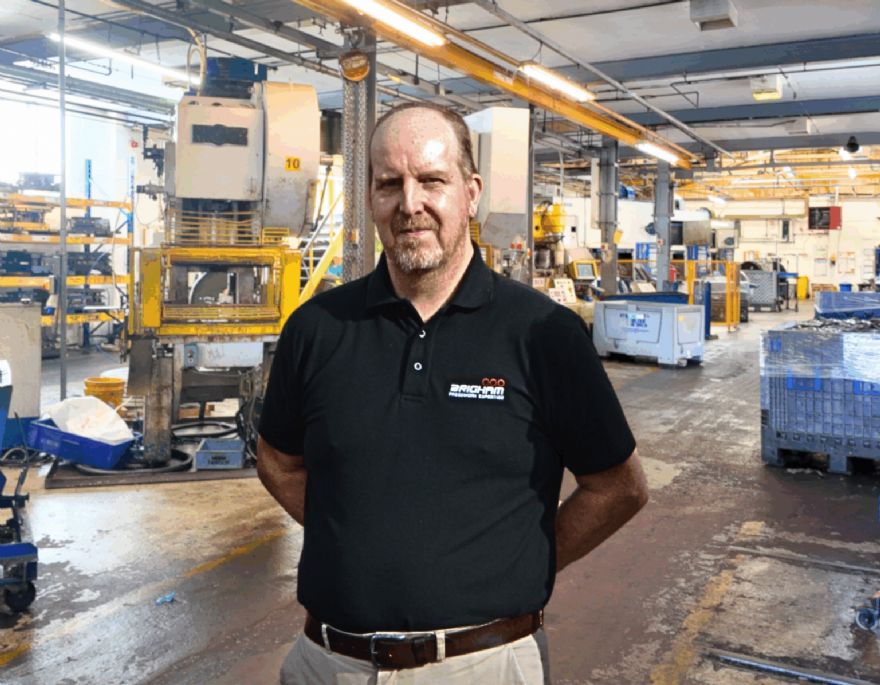
As the Chancellor prepares to deliver the forthcoming Budget, Coleshill-based metal presswork specialist
HT Brigham & Co Ltd has urged the government to introduce bold, practical measures that support UK manufacturing, strengthen productivity, and ease financial pressures on businesses and households. With rising energy costs, an ageing skills pipeline and persistent supply chain challenges continuing to weigh on British industry, HT Brigham’s leadership says this Budget represents a pivotal moment to rebalance the scales and ensure manufacturers can compete, grow and invest with confidence.
Chief executive Doug Allen, whose background is in aerospace manufacturing, believes the government must view manufacturing as a strategic national asset and back it in the Chancellor’s Budget. “Manufacturing underpins every part of the UK economy, yet too often it sits on the sidelines of policy,” says Mr Allen. “This Budget needs to send a clear message that Britain backs its makers. We need a cohesive, long-term plan for engineering and manufacturing. Isolated initiatives lack long-term strategy and are at best an attempt to paper over the cracks.”
Mr Allen argues that high-energy industrial SMEs, which form the backbone of UK supply chains, require targeted support as they navigate the cost burden of modern manufacturing. “For energy-hungry processes, even a modest level of subsidy would make a meaningful difference,” he adds. “It would stabilise pricing, protect jobs, and give businesses the confidence to invest in new capability.”
For Allan Murray, managing director and co-owner of HT Brigham, the Budget must also consider the smaller firms that sit upstream in manufacturing ecosystems. “Raising the VAT threshold would be a lifeline for micro-businesses. They’re the innovators, the specialists, the niche suppliers who keep larger manufacturers moving. Giving them more breathing room would have a positive ripple effect across the whole sector.” He also calls for action on personal taxation to support lower-income households at a time when inflation continues to erode disposable income. “It would be right to raise the lower tax threshold to help those worst off,” he says. “And that could be balanced by a small uplift at the very top. Fairness matters, and a healthier workforce means a healthier economy as well as a happier place to work.”
Skills and innovation remain top priorities for HT Brigham, which recently launched a Knowledge Transfer Partnership with
Birmingham City University to channel academic insights into industrial practice. Mr Allen says the Budget must reflect the importance of both R&D incentives and grassroots education. “We need meaningful investment in engineering and manufacturing skills—from school level right through to advanced vocational training,” he says. “That’s how we secure the next generation of problem-solvers. R&D funding is also essential. Whether it’s new materials, automation, or digital manufacturing, innovation is what keeps British industry competitive on the world stage.”
Both leaders also emphasise the urgent need for improved local transport infrastructure to support regional manufacturing communities. “The region has well documented congestion issues,” says Mr Allen. “Moving away from the rhetoric of environmental impact and inconvenience, better public transport connects people to opportunities. It helps manufacturers recruit, it improves reliability, and it strengthens the fabric of local economies.”
While both Mr Allen and Mr Murray support targeted interventions, they stress that meaningful progress requires joined-up thinking from policymakers. “Some of this is tactical—tax thresholds, energy support, funding lines,” says Mr Allen. “However, what we really need is a coherent industrial strategy. A roadmap that backs British engineering and manufacturing for the long term and that has been lacking for successive governments.”
As the industry waits for the Chancellor to take to the dispatch box, HT Brigham’s message is clear: the UK’s makers are ready to invest, innovate and grow—and they need a Budget that recognises their central role in the nation’s future. “Give manufacturing the support it deserves,” Mr Murray says, “and the sector will deliver tenfold in jobs, productivity and global competitiveness.”